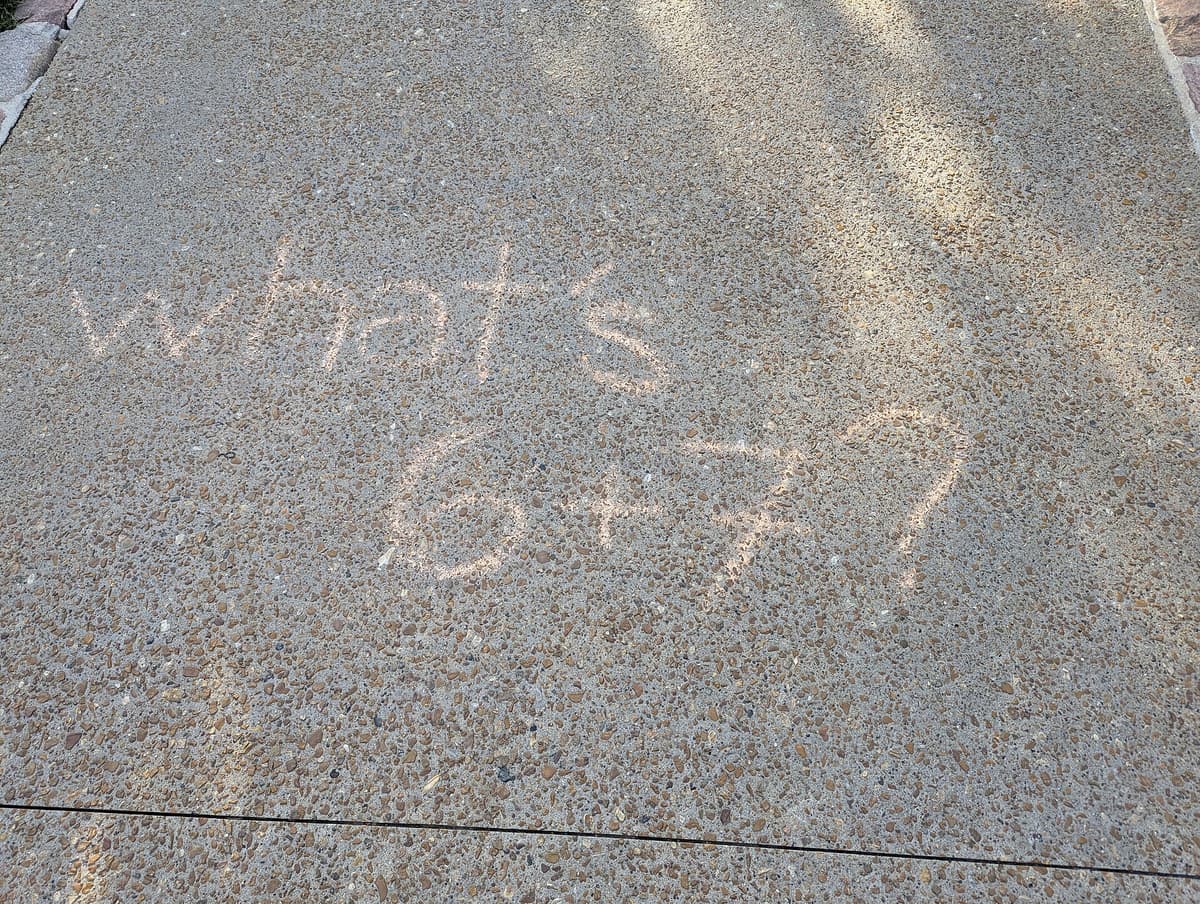What Does ‘6-7’ Mean? Literally Nothing but It Still Matters
The nonsensical phrase students are using to drive teachers nuts is named Dictionary.com’s 2025 Word of the Year.

With the way things are going these days, it makes perfect sense that the Word of the Year for 2025, declared on Wednesday by dictionary.com, is “6-7.”
That’s right. Two numbers. It’s not even a word, just pure, unadulterated nonsense — and according to Dictionary.com, that’s exactly why it matters.
“The Word of the Year isn’t just about popular usage; it reveals the stories we tell about ourselves and how we’ve changed over the year. And for these reasons, Dictionary.com’s 2025 Word of the Year is 67,” the site said in a press release.
“If you’re the parent of a school-aged child, you might be feeling a familiar vexation at the sight of these two formerly innocuous numerals,” the site said. “If you’re a member of Gen Alpha, however, maybe you’re smirking at the thought of adults once again struggling to make sense of your notoriously slippery slang. And if it’s a surprise to you that 67 (pronounced ‘six-seven’) is somehow newsworthy, don’t worry, because we’re all still trying to figure out exactly what it means.”
Little is known about the phrase’s exact origin, but there are theories. Some say the phrase originated from rapper Skrilla’s 2024 drill track “Doot Doot (6 7).” Skrilla isn’t much help. “I never put an actual meaning on it, and I still would not want to,” he told the Wall Street Journal. “That’s why everybody keeps saying it.”
Others tie the line to Chicago’s 67th Street or a police code. Then there’s the LaMelo Ball theory. The Skrilla song went viral on TikTok, in part due to an edit featuring NBA player LaMelo Ball, who is 6 feet 7 inches tall. The video highlighted this detail and played the song, cementing the connection in basketball and internet culture.
Wherever it came from, the phrase became the rallying cry of Gen Alpha and Gen Z, shouted in classrooms, TikTok videos, and grocery store aisles — often stretched out to sound like six-sev-eeennn — with the kind of fervor usually reserved for actual words.
By September, 6-7 had become so ubiquitous that “South Park” featured it in an episode. The show’s writers, no strangers to skewering internet culture, recognized what many adults still haven’t: this isn’t just a meme. It’s a movement. By October, 6-7 appeared in digital media six times more frequently than in all of 2024 combined.
“It’s part inside joke, part social signal and part performance,” director of lexicography for the Dictionary Media Group at IXL Learning, Steve Johnson, told the Huffington Post. “When people say it, they’re not just repeating a meme; they’re shouting a feeling. It’s one of the first Words of the Year that works as an interjection — a burst of energy that spreads and connects people long before anyone agrees on what it actually means.”
In years past, Dictionary.com have selected such words of the year as unprecedented (2020), allyship (2021), and hallucinate (2023). But 6-7 represents something different: a linguistic phenomenon that thrives on absurdity rather than definition — and isn’t even a word.
So there you have it. The Word of the Year for 2025 is two numbers strung together by a hyphen, shouted with reckless abandon by children who understand its power better than any lexicographer ever could.
Is it meaningful? No. Is it profound? Absolutely not. Does it capture the chaotic, irony-soaked, algorithm-driven spirit of our times? Six-sev-eeennn.

